456 start with S start with S
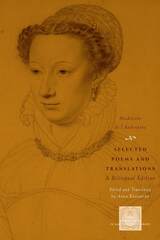
Rather than adopt the conventional self-effacement that defined female poets of the time, l’Aubespine’s speakers are sexual, dominant, and defiant; and her subjects are women who are able to manipulate, rebuke, and even humiliate men.
Unavailable in English until now and only recently identified from scattered and sometimes misattributed sources, l’Aubespine’s poems and literary works are presented here in Anna Klosowska’s vibrant translation. This collection, which features one of the first French lesbian sonnets as well as reproductions of l’Aubespine’s poetic translations of Ovid and Ariosto, will be heralded by students and scholars in literature, history, and women’s studies as an important addition to the Renaissance canon.
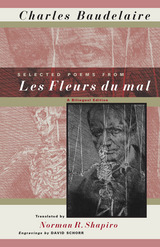
"A fine, formal translation of the best poems of France's founder of the symbolist movement."—St. Louis Post-Dispatch
"It's rare to find a rewarding translation of a masterwork, particularly a collection of groundbreaking poetry. . . . Through Shapiro's skillful wordsmithing, the reader can fully appreciate Baudelaire's control of the soul and the word which is the ancient and indefatigable ambition of all great poets. . . . Shapiro's interpretations set the standard for future English translations."—Virginia Quarterly Review
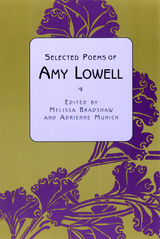
Amy Lowell (1874–1925), American poet and critic, was one of the most influential and best-known writers of her era. Within a thirteen-year period, she produced six volumes of poetry, two volumes of criticism, a two-volume biography of John Keats, and countless articles and reviews that appeared in many popular periodicals. As a herald of the New Poetry, Lowell saw herself and her kind of work as a part of a newly forged, diverse, American people that registered its consciousness in different tonalities but all in a native idiom. She helped build the road leading to the later works of Allen Ginsberg, May Sarton, Sylvia Plath, and beyond. Except for the few poems that invariably appear in American literature anthologies, most of her writings are out of print. This will be the first volume of her work to appear in decades, and the depth, range, and surprising sensuality of her poems will be a revelation.
The poetry is organized according to Lowell’s characteristic forms, from traditional to experimental. In each section the works appear in chronological order. Section one contains sonnets and other traditional verse forms. The next section covers her translations and adaptations of Chinese and Japanese poetry, whereby she beautifully renders the spirit of these works. Also included here are several of Lowell’s own Asian-influenced poems. Lowell’s free, or cadenced verse appears in the third part. The last section provides samples of Lowell’s polyphonic prose, an ambitious and vigorous art form that employs all of the resources of poetry.
The release of The Selected Poems of Amy Lowell will be a major event for readers who have not been able to find a representative sampling of work from this vigorous, courageous poet who gave voice to an erotic, thoroughly American sensibility.
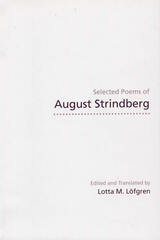
August Strindberg (1849–1912) was one of the great innovators of modern drama as well as a novelist, poet, and master of the Swedish language. In this collection, Selected Poems of August Strindberg, editor and translator Lotta M. Löfgren has chosen poems from all three volumes of Strindberg’s verse—Poems in Verse and Prose, Sleepwalking Nights on Awake Days, and Word Play and Minor Art—to illustrate to the English-speaking reader the development, strengths, and versatility of Strindberg the poet.
Löfgren explains, “Although August Strindberg is internationally acknowledged as a pioneering realist, expressionist, and surrealist playwright, his poetry is still relatively unknown outside Sweden. The only English translation of [his] poems to date is the 1978 translation of Sleepwalking Nights by Arvid Paulson . . . that gives an incomplete and misleading picture of Strindberg’s poetry.”
Löfgren’s translation seeks to correct that picture. Strindberg’s stature as a dramatist alone may be adequate justification for offering a translation of his verse, but his poetry stands well on its own. All three volumes broke new ground and paved the way for younger generations of poets. Löfgren hopes that her translation will not only introduce Strindberg’s verse to English-speaking readers but will also inspire other scholars to revisit his poetry and give it the attention it deserves.
Selected Poems of August Strindberg received the American-Scandinavian Foundation’s Translation Prize in 2000.
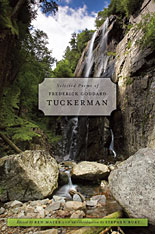
Unlike Whitman, Dickinson, or Wordsworth, Frederick Goddard Tuckerman (1821–1873) never wanted to start a revolution in poetry. Nor did he—like Longfellow or his friend Tennyson—capture or ever try to represent the spirit of his age. Yet he remains one of America’s most passionate, moving, and technically accomplished poets of the nineteenth century: a New Englander through and through, a poet of the outdoors, wandering fields and wooded hillsides by himself, driven to poetry and the solitude of nature by the loss of his beloved wife. This is the persona we encounter again and again in Tuckerman’s sonnets and stanzaic lyric poetry.
Correcting numerous errors in previous editions, this is the first reliable reading edition of Tuckerman’s poetry. Ben Mazer has painstakingly re-edited the poems in this selection from manuscripts at the Houghton Library. Included in this generous selection are several important poems omitted in The Complete Poems of Frederick Goddard Tuckerman. In her introduction to the volume, Stephanie Burt celebrates an extraordinary poet of mourning and nature—an anti-Transcendental—who in many ways seems closer to writers of our own century than to, say, Emerson or even Thoreau. Readers who enjoy the verse of Richard Wilbur, Anthony Hecht, or Mary Oliver will find much to admire in Tuckerman’s poetry.
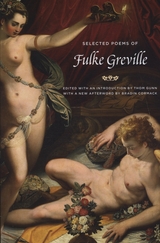
Along with his childhood friend Sir Philip Sidney, Fulke Greville (1554–1628) was an important member of the court of Queen Elizabeth I. Although his poems, long out of print, are today less well known than those of Sidney, Spenser, or Shakespeare, Greville left an indelible mark on the world of Renaissance poetry, both in his love poems, which ably work within the English Petrarchan tradition, and in his religious meditations, which, along with the work of Donne and Herbert, stand as a highpoint of early Protestant poetics.
Back in print for a new generation of scholars and readers, Thom Gunn’s selection of Greville’s short poems includes the whole of Greville’s lyric sequence, Caelica, along with choruses from some of Greville’s verse dramas. Gunn’s introduction places Greville’s thought in historical context and in relation to the existential anxieties that came to preoccupy writers in the twentieth century. It is as revealing about Gunn himself, and the reading of earlier English verse in the 1960s, as it is about Greville’s own poetic achievement. This reissue of Selected Poems of Fulke Greville is an event of the first order both for students of early British literature and for readers of Thom Gunn and English poetry generally.
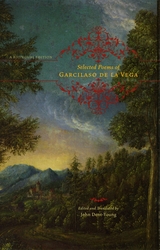
Garcilaso de la Vega (ca. 1501–36), a Castilian nobleman and soldier at the court of Charles V, lived a short but glamorous life. As the first poet to make the Italian Renaissance lyric style at home in Spanish, he is credited with beginning the golden age of Spanish poetry. Known for his sonnets and pastorals, gracefully depicting beauty and love while soberly accepting their passing, he is shown here also as a calm student of love’s psychology and a critic of the savagery of war.
This bilingual volume is the first in nearly two hundred years to fully represent Garcilaso for an Anglophone readership. In facing-page translations that capture the music and skill of Garcilaso’s verse, John-Dent Young presents the sonnets, songs, elegies, and eclogues that came to influence generations of poets, including San Juan de la Cruz, Luis de Leon, Cervantes, and Góngora. The Selected Poems of Garcilaso de la Vega will help to explain to the English-speaking public this poet’s preeminence in the pantheon of Spanish letters.

Howard Nemerov—poet laureate of the United States, winner of the Pulitzer Prize and National Book Award, and chancellor of the Academy of American Poets—was one of the most prolific and significant American poets of the twentieth century. By the time of his death in 1991, he had published fourteen collections of poetry.
Judiciously selected and introduced by poet Daniel Anderson, The Selected Poems of Howard Nemerov represents the broad spectrum of Nemerov’s virtues as a poet—his intelligence, his wit, his compassion, and his irreverence. It stands as the retrospective collection of the best of what Nemerov left behind, which is some of the finest poetry that the twentieth century produced.
“To keep his errors down to a minimum,” W. H. Auden wrote, “the internal Censor to whom a poet submits his work in progress should be a Censorate. It should include, for instance, a sensitive only child, a practical housewife, a logician, a monk, an irreverent buffoon a nd even, perhaps, hated by all others and returning their dislike, a brutal, foul-mouthed drill sergeant who considers all poetry rubbish.”
Such are the readers to whom the poetry of Howard Nemerov might appeal. He distinguished himself on the landscape of American letters as a writer of great versatility. More than a decade after his death, that claim still holds true.
In this, the only edition of Nemerov’s work that surveys his entire poetic output, first-time readers of these poems will find an introduction to a truly remarkable creative mind. Longtime admirers of Nemerov will be reminded once again of his significance as a craftsman and philosopher, and as a poetic steward of the many ways in which we experience the world.

Selected Poems is the first book-length translation of Verdaguer’s works into English. Ronald Puppo offers readable and faithful verse adaptations of poetry from all periods of the poet-priest’s life, from his days as a seminary student and farmhand to his journeys as a ship’s chaplain and eventual spiritual crisis. These adroit translations will recover Verdaguer as a major figure in the modern literary tradition of the West, restoring him to the pantheon of world letters.

Since the appearance in print of her early poems over seventy-five years ago, the poetry of Janet Lewis has grown in quiet acclaim and popularity. Although she is better known as a novelist of historical fiction, her first and last writings were poems. With the publication of her selected poems, Swallow Press celebrates the distinguished career of one of its most cherished authors.
Critics as disparate as Kenneth Rexroth, Timothy Steele, Theodore Roethke, Larry McMurtry, N. Scott Momaday, and Dana Gioia have sung the praises of her work over the decades. Her career as a poet was remarkable not only for its longevity but also for the fact that even well into her tenth decade she wrote poems that stand with her very best work.
Characterized by the vigor and sharpness of her images and the understated lyricism that permeates her rhythmic lines, The Selected Poems of Janet Lewis is a survey of modern poetry unto itself.
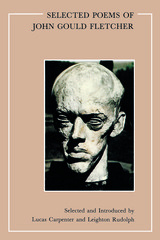
A Pulitzer Prize winner best known as an imagist, John Gould Fletcher experimented with every facet of Modernist poetry and influenced poets in both England and the United States. this is the first collection to span his entire career, and brings again to the public eye work that has been unavailable for thirty-five years.
Fletcher is responsible for introducing Ezra Pound to French symbolism, and Amy Lowell to “polyphonic prose,” and his connection with the Southern Fugitive Agrarian movement adds to his significance as the first modern Southern poet. The editors have chosen representative works for his many stages of development and discuss in the introduction Fletcher’s influence on the better-known modernists.
Selected Poems of John Gould Fletcher is the first n a series of books by or about Fletcher to fill an important space in home and public libraries with American literature collections.
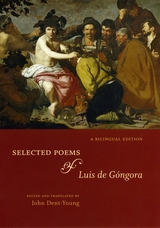
Making Luis de Góngora’s work available to contemporary English-language readers without denying his historical context, Selected Poems of Luis de Góngora presents him as not only one of the greatest and most complex poets of his time, but also the funniest and most charismatic. From longer works, such as “The Fable of Polyphemus and Galatea,” to shorter ballads, songs, and sonnets, John Dent-Young’s free translations capture Góngora’s intensely musical voice and transmit the individuality and self-assuredness of the poet. Substantial introductions and extensive notes provide personal and historical context, explain the ubiquitous puns and erotic innuendo, and discuss translation choices. A significant edition of this seminal and challenging poet, Selected Poems of Luis de Góngora will find an eager audience among students of poetry and scholars studying the history and literature of Spain.
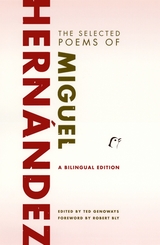
Now, for the first time, Ted Genoways makes Hernández's extraordinary oeuvre available in an authoritative bilingual edition. Featuring some of the most tender and vigorous poetry on war, death, and social injustice written in the past century, nearly half of the poems in this volume appear in English for the first time, making it the most comprehensive bilingual collection of Hernández's work available. Arranged chronologically, The Selected Poems of Miguel Hernández presents Hernández's remarkable emotional range as well as his stylistic evolution from the Romantic shepherd poet to poet of the prison cell. Thorough annotations and introductory essays illuminate the biographical basis for many of Hernández's poems, while a foreword by Robert Bly and an afterword by Octavio Paz provide a striking frame for the work of this essential poet.
"What a victory it is to watch springing forth from our murky thicket of half-commercialized poetry the silver boar of Hernández's words-to see the world of paper part so as to allow the language tusks and shoulders to emerge, shining, pressed forward by his genius. This generous selection of Miguel Hernández's work, arranged, shepherded, and largely translated by Ted Genoways, is an immense gift for which all of us should be grateful."-from the Foreword by Robert Bly
"To gather Hernández's poetry in such a large volume is to bring one of the 20th century's most important poets to life again. Without Hernandez, the world community of poetry would not be what it is today. The Selected Poems must be read if vital poetry is to continue another 100 years, with Hernández's voice as a cherished example of why great poetry is timeless."—Ray González, Bloomsbury Review
"As Philip Levine write in The Kenyon Review, Hernández is 'one of the great talents of the century,' and this collection is a good place to discover (or rediscover) his moving verses."—Virginia Quarterly Review
"Vivid, often volatile imagery describes wrenching emotions and events in The Selected Poems of Miguel Hernández: A Bilingual Edition. . . . Raw, passionate, despairing and celebratory, these poems are a true discovery."—Publishers Weekly
"Arranged in three chronological sections, the poems presented are not the complete works, but they are a large and representative sampling of the best. This is certainly the most comprehensive bilingual edition of Hernández's poetry available. In addition to the poems, the editor includes eight illustrations, important prefatory materials, and a short list of references, and an epilogue by Octavio Paz."—Choice
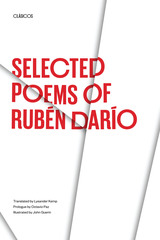
Toward the close of the last century, the poetry of the Spanish-speaking world was pallid, feeble, almost a corpse. It needed new life and a new direction. The exotic, erratic, revolutionary poet who changed the course of Spanish poetry and brought it into the mainstream of twentieth-century Modernism was Félix Rubén García Sarmiento (1867-1916) of Nicaragua, who called himself Rubén Darío.
Since its original publication in 1965, this edition of Darío's poetry has made English-speaking readers better acquainted with the poet who, as Enrique Anderson Imbert said, "divides literary history into 'before' and 'after.'" The selection of poems is intended to represent the whole range of Darío's verse, from the stinging little poems of Thistles to the dark, brooding lines of Songs of the Argentine and Other Poems. Also included, in the Epilogue, is a transcript of a radio dialogue between two other major poets, Federico García Lorca of Spain and Pablo Neruda of Chile, who celebrate the rich legacy of Rubén Darío.

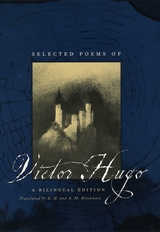
Translators E. H. and A. M. Blackmore have collected Victor Hugo's essential verse into a single, bilingual volume that showcases all the facets of Hugo's oeuvre, including intimate love poems, satires against the political establishment, serene meditations, religious verse, and narrative poems illustrating his mastery of the art of storytelling and his abiding concern for the social issues of his time. More than half of this volume's eight thousand lines of verse appear here for the first time in English, providing readers with a new perspective on each of the fascinating periods of Hugo's career and aspects of his style. Introductions to each section guide the reader through the stages of Hugo's writing, while notes on individual poems provide information not found in even the most detailed French-language editions.
Illustrated with Hugo's own paintings and drawings, this lucid translation—available on the eve of Hugo's bicentenary—pays homage to this towering figure of nineteenth-century literature by capturing the energy of his poetry, the drama and satirical force of his language, and the visionary beauty of his writing as a whole.
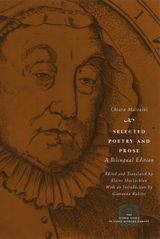
Mostly available in only a handful of rare book collections, her writings are now adeptly translated here for an English-speaking audience and situated historically in an introduction by noted Matraini expert Giovanna Rabitti. Selected Poetry and Prose allows the poet to finally take her place as one of the seminal authors of the Renaissance, next to her contemporaries Vittoria Colonna and Laura Battiferra, also published in the Other Voice series.
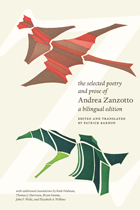
Andrea Zanzotto is widely considered Italy’s most influential living poet. The first comprehensive collection in thirty years to translate this master European poet for an English-speaking audience, The Selected Poetry and Prose of Andrea Zanzotto includes the very best poems from fourteen of his major books of verse and a selection of thirteen essays that helps illuminate themes in his poetry as well as elucidate key theoretical underpinnings of his thought. Assembled with the collaboration of Zanzotto himself and featuring a critical introduction, thorough annotations, and a generous selection of photographs and art, this volume brings an Italian master to vivid life for American readers.
“Now, in [this book], American readers can get a just sense of [Zanzotto’s] true range and extraordinary originality.”—Eric Ormsby, New York Sun
“What I love here is the sense of a voice directly speaking. Throughout these translations, indeed from early to late, the great achievement seems to be the way they achieve a sense of urgent address.”—Eamon Grennan, American Poet
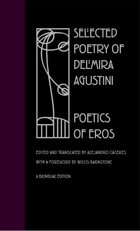
This graceful translation and bilingual edition, now in paperback, is the first to bring English readers a representative sampling of the poetry Delmira Agustini published before her untimely death on July 6, 1914 at the age of twenty-seven. Translated by native Uruguayan Alejandro Cáceres and including work from each of Agustini's four published books, Selected Poetry of Delmira Agustini: Poetics of Eros is a response to a resurgent interest not just in the poems but in the passionate and daring woman behind them and the social and political world she inhabited.
Delmira Agustini was born in Montevideo, Uruguay, on October 24, 1886 to wealthy parents of German and Italian descent. She published her first volume of poetry when she was twenty-one and followed with two more in the next six years: the fourth volume was a posthumous publication. Her life was cut short in 1914, when Enrique Job Reyes, her ex-husband, shot her to death and then turned the gun on himself.
Carefully selected for this bilingual, en face edition, the poems collected here track and highlight Agustini's development and strengths as an artist—including her methods of experimentation, first relying on modernista forms and later abandoning them—and her focus on the figure of the male, which she portrays as the crux of devotion and attention but deems ultimately unreachable. Cáceres's introduction presents biographical information and situates Agustini's work and life in a larger political, historical, and literary context, particularly the modernismo movement, whose followers broke linguistic and political ties with the pathos and excesses of romanticism.
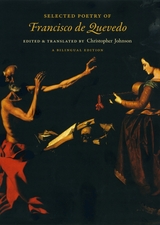
Francisco de Quevedo (1580–1645), one of the greatest poets of the Spanish Golden Age, was the master of the baroque style known as “conceptismo,” a complex form of expression fueled by elaborate conceits and constant wordplay as well as ethical and philosophical concerns. Although scattered translations of his works have appeared in English, there is currently no comprehensive collection available that samples each of the genres in which Quevedo excelled—metaphysical and moral poetry, grave elegies and moving epitaphs, amorous sonnets and melancholic psalms, playful romances and profane burlesques.
In this book, Christopher Johnson gathers together a generous selection of forty-six poems—in bilingual Spanish-English format on facing pages—that highlights the range of Quevedo’s technical expertise and themes. Johnson’s ingenious solutions to rendering the difficult seventeenth-century Spanish into poetic English will be invaluable to students and scholars of European history, literature, and translation, as well as poetry lovers wishing to reacquaint themselves with an old master.
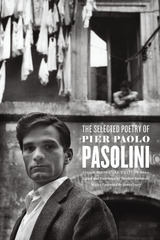
For the first time, Anglophones will now be able to discover the many facets of this singular poet. Avoiding the tactics of the slim, idiosyncratic, and aesthetically or politically motivated volumes currently available in English, Stephen Sartarelli has chosen poems from every period of Pasolini’s poetic oeuvre. In doing so, he gives English-language readers a more complete picture of the poet, whose verse ranged from short lyrics to longer poems and extended sequences, and whose themes ran not only to the moral, spiritual, and social spheres but also to the aesthetic and sexual, for which he is most known in the United States today. This volume shows how central poetry was to Pasolini, no matter what else he was doing in his creative life, and how poetry informed all of his work from the visual arts to his political essays to his films. Pier Paolo Pasolini was “a poet of the cinema,” as James Ivory says in the book’s foreword, who “left a trove of words on paper that can live on as the fast-deteriorating images he created on celluloid cannot.”
This generous selection of poems will be welcomed by poetry lovers and film buffs alike and will be an event in American letters.

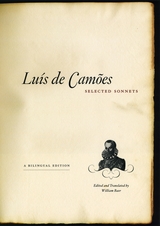
The first significant English translation of Camões's sonnets in more than one hundred years, Selected Sonnets: A Bilingual Edition collects seventy of Camões's best—all musically rendered into contemporary, yet metrical and rhymed, English-language poetry by William Baer, with the original Portuguese on facing pages—and reintroduces the genius of a poet whom Cervantes called "the incomparable treasure of Lusus." A comprehensive selection of sonnets that demonstrates the full range of Camões's interests and invention, Selected Sonnets will prove indespensible for both students and teachers in comparative and Renaissance literature, Portuguese and Spanish history, and the art of literary translation.
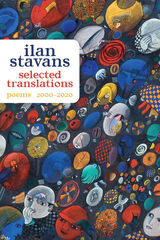

Selected Writings brings together a representative sampling of Marguerite’s varied writings, most of it never before translated into English, enabling Anglophone readers to enjoy the full breadth of her work for the first time. From verse letters and fables to mythological-pastoral tales, from spiritual songs to a selection of novellas from the Heptameron, the wide range of works included here will reveal Marguerite de Navarre to be one of the most important writers—male or female—of sixteenth-century France.


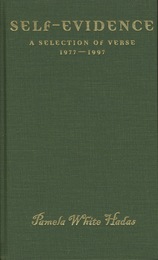
Pamela White Hadas won enthusiastic recognition for her early books of poetry, Designing Women and Beside Herself. In Self-Evidence, she selects the best of her published work and combines it with poems never before collected. This collection contains legendary, mythic, historical, and imaginary characters--Lilith, Pocahontas, Simone Weil, the wives of Watergate, a circus performer, and others. With playful originality and virtuoso voicing, Hadas weaves breathtaking tapestries of women's loves and labors.


As with her previous collections, the poems in Self/Pity can be read as a cohesive whole.
From the simple prayer "To Jacob Four Months In The Womb" to the complex territory of the poem sequence "The Pornography of Pity," in which Mother Goose, the Marquis de Sade, Godot, Lewis Carroll's Alice, The Cat and the Fiddle, Zeus, and many others are called upon, Hahn creates a tour-de-force exploration of the book's central themes.
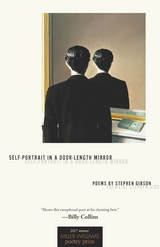
Winner of the 2017 Miller Williams Poetry Prize, edited by Billy Collins
“Shows this exceptional poet at his rhyming best.”
—Billy Collins
Self-Portrait in a Door-Length Mirror presents the mirror that reflects not always what is, but what is desired, or not desired. In the opening poem, the speaker, Diane Arbus, looks at her very early pregnant self and asks, “Why would I bring you into this world?” This book answers that question, or tries to: the world is what it is as we try to live as our best selves in that world. But that knowledge of the world is hard and has consequences, and not in the abstract, as Gibson’s poetry dynamically shows.
Employing new formalism, Self-Portrait in a Door-Length Mirror examines historical, familial, and personal pasts as those pasts continue into the present, reminding us, as Faulkner wrote, “The past is never dead. It’s not even past.”
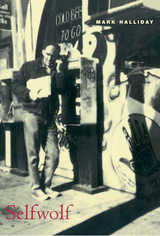
"If Selfwolf were a pop music CD, it would be hailed as Mark Halliday's breakthrough album. . . . This third collection of poems teems with unsparing confessions of misdirected lust, lost faith, regret and a winningly goofy cheerfulness in the face of all that bad stuff. . . . The informal, conversational quality of Halliday's work almost hides its artfulness, which seems to be precisely his intention."—Ken Tucker, New York Times Book Review
"With unflinching, often comic honesty about how 'ego-fetid, hostile, grasping' we are, Halliday exposes the self's wolfish hungers and weaknesses."—Andrew Epstein, Boston Review
"Mark Halliday's new book offers more of his trademark riffs on self-consciousness. His subversive, surprising, hugely enjoyable poems will make you laugh out loud, squirm in uncomfortable recognition, and appreciate anew the comedy of our daily battles for self-preservation. . . reading Halliday is pure delight. . . . I love the daring and intelligence with which Halliday skates along the shifting boundary between self within and world outside. Selfwolf slows down our habitual negotiations between 'in here' and 'out there,' exposing the edgy comedy of how we survive."—Damaris Moore, Express Books
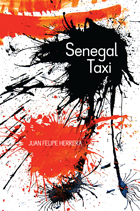
Unflinching in its honesty, brutality, and beauty, the collection fiercely addresses conflict and childhood, inviting readers to engage in complex and often challenging issues. Senegal Taxi weaves together verse, dialogue, and visual art created by Herrera specifically for the book. Stylistically genre-leaping, these many layers are part of the collection’s innovation. Phantom-like televisions, mud drawings, witness testimonies, insects, and weaponry are all storytellers that join the siblings for a theatrical crescendo. Each poem is told from a different point of view, which Herrera calls “mud drawings,” referring to the evocative symbols of hope the children create as they hide in a cave on their way to Senegal, where they plan to catch a boat to the United States.
This collection signals a poignant shift for Herrera as he continues to use his craft to focus attention on global concerns. In so doing, he offers an acknowledgment that the suffering of some is the suffering of all.
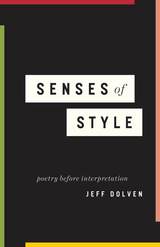
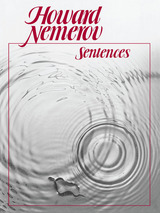
"In [Sentences], not only has Nemerov continued to accommodate himself to the literary tradition without falling back on parody; he has also . . . extended the resources of blank verse beyond what any modern practitioner, himself included, has managed to. This extension comprises more than a mere prosodic advance; it is a rhetorical and imaginative advance. 'By Al Lebowitz's Pool,' 'The Makers,' 'Monet,' and 'A Christmas Storm,' for example, are dazzling in their very naturalness. . . . No one since Frost has done as much to move blank verse from where Wordsworth and Coleridge had left it."—Mary Kinzie, Poetry
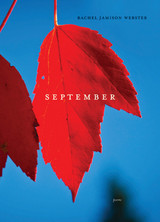
The poems in Rachel Webster’s debut collection September often address a fleeting moment. Like the month, the moment can be a single leaf falling or a season of life. Webster’s pastoral poems address personal physical change in the seasons of life, including childhood, love, motherhood, and death. Together they lead the reader through a lyrical landscape of conversation, meditation, and healing. The work of a poet sensitive to worlds external and internal, September speaks to the core of life and the simplicity of human events and the natural world around us.



The Wedding of Vlahinjic Alija represents a unique experiment in field collecting of oral traditional epic poetry. In order to determine whether and exactly how the text of a long epic would change as the best of oral poets told and retold it, Milman Parry first made a complete audio-recording of Avdo Međedović singing this long heroic narrative, and then some days later had the entire epic taken down again by dictation from the same singer.
Both texts, the sung (6053 verses) and the dictated (5883 verses) are presented in this volume, showing precisely the effects both of recomposition and of the “intervention” of writing by an amanuensis. Osmanbeg Delibegović i Pavičević Luka is 13,326 verses long, a modern oral traditional epic of truly Homeric length. It is the longest complete and continuous oral epic text that has yet been recorded anywhere in the modern world.
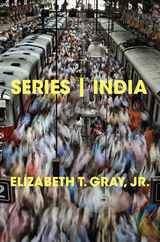
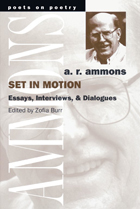


Perrone introduces the most important poetic themes of the second half of this century with a look back at Brazilian modernismo and the avant-garde legacy of poets of the 1920s and 30s. Brazilian poets, the author reveals, have long drawn inspiration from the other arts, experimenting with the inclusion of music, graphic arts, and other nontraditional elements within lyric forms. Relating aesthetic concerns to cultural issues, Perrone elucidates the major poetic movements in Brazil since modernismo: concretism and vanguard poetry, politically committed verse of the 60s, youth poetry of the 70s, the lyricism of Brazil’s renowned popular music, and the rethinking of poetry through postmodernism in the final decades of this century.
Providing a window on the ways in which poetry reflects a national spirit and offers a measure of the status of culture in a consumer society, Seven Faces is the only book-length study in English of contemporary Brazilian poetry. It will be welcomed by students and scholars of Latin American literature as well as by general readers interested in poetry and its influence on culture and society.
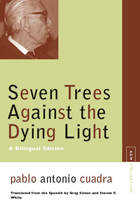
Standing against the visible landscape—the mountainous volcanoes, the jungles and savannahs—the seven trees conjured in these narrative poems by one of Latin America's masters also evoke another, more mysterious terrain. It is this other landscape, as invisible as poetry before it is written down but etched by history and animated by the collective memory of a people, that speaks through Pablo Antonio Cuadra’s Seven Trees against the Dying Light.
Storing experience as they exist, these tree-poems conserve local soil and memory in the place they inhabit. They are figures of life, stained by seawater and gun powder, by the bright red, bittersweet juice of the many life-giving plums that flourish in Nicaragua, and blood that has been spilled there. And they offer a way of remembering who we are, where we come from, and, above all, where we are bound if we cannot learn to root language in the earth that sustains us.
Printed here in Spanish with facing English translations, the edition includes an introduction with ecocritical focus, as well as complete notes on botanical, historical, mythological, and socio-political references.

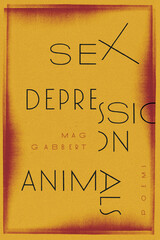
In SEX DEPRESSION ANIMALS, Mag Gabbert redefines the bestiary in fiery, insistent, and resistant terms. These poems recast the traumas of her adolescence while charting new paths toward linguistic and bodily autonomy as an adult. Using dreamlike, shimmering imagery, she pieces together a fractured portrait of femininity—one that electrifies the confessional mode with its formal play and rich curiosity. Gabbert examines the origin of shame, the role of inheritance, and what counts as a myth, asking, “What’s the opposite of a man? / A woman? A wound? The devil’s image?”

The poems in Samuel Hazo’s Sexes: The Marriage Dialogues are concerned with how husbands and wives confront each other at life’s various intersections—sometimes casually, sometimes profoundly. It is at these points that the most interesting differences in gender reveal themselves. From the first poem (“Banterers”) to the last (“Ballad of the Old Lovers”) Hazo’s attuned ear picks up quotidian conversational exchanges, but the words are never window dressing. They hint at inevitable insights and misunderstandings born out of conjugal love. Each poem is a vignette of the moving and surprising moments that are married life.

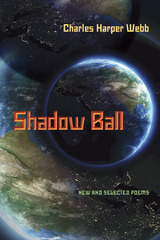
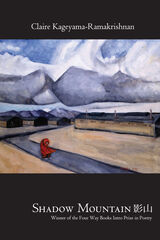
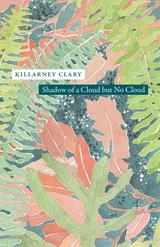
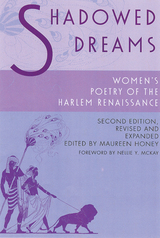
The first edition of Shadowed Dreams was a groundbreaking anthology that brought to light the contributions of women poets to the Harlem Renaissance. This revised and expanded version contains twice the number of poems found in the original, many of them never before reprinted, and adds eighteen new voices to the collection to once again strike new ground in African American literary history. Also new to this edition are nine period illustrations and updated biographical introductions for each poet.
Shadowed Dreams features new poems by Gwendolyn Bennett, Anita Scott Coleman, Mae Cowdery, Blanche Taylor Dickinson, Alice Dunbar-Nelson, Jessie Fauset, Angelina Weld Grimké, Gladys Casely Hayford (a k a Aquah Laluah), Virginia Houston, Georgia Douglas Johnson, Helene Johnson, Effie Lee Newsome, Esther Popel, and Anne Spencer, as well as writings from newly discovered poets Carrie Williams Clifford, Edythe Mae Gordon, Alvira Hazzard, Gertrude Parthenia McBrown, Beatrice Murphy, Lucia Mae Pitts, Grace Vera Postles, Ida Rowland, and Lucy Mae Turner, among others.
Covering the years 1918 through 1939 and ranging across the period’s major and minor journals, as well as its anthologies and collections, Shadowed Dreams provides a treasure trove of poetry from which to mine deeply buried jewels of black female visions in the early twentieth century.

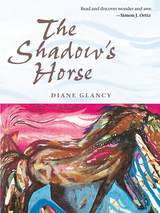
The Shadow's Horse is a new collection of poems in which Glancy walks the margin between her white and Indian heritage. In poems that conjure the persistence of fallen leaves or juxtapose images of Christ and the stockyards, she powerfully evokes place and spirit to address with intelligence and beauty issues of family, work, and faith.
In some of these poems Glancy recalls growing up with her Cherokee father, who worked in a stockyard, radically applying Christian theology to the slaughter of non-human creatures: The cattle go up the ramp
dragging their crosses.
Their voices are Gregorian chants
rising to the blue sky,
the cold clouds.
In others she examines the walk of history through the ordinary details of life-history seen from two points of view, early Euro-American and contemporary Native American. She sees her Native heritage as shortlived and fragile, yet as enduring as leaves, and she asks, "If you line up all the leaves that fall / how many times will they go around the earth?"
Writing in a cross-boundaried, fragmented voice—a voice based on the memory of the way language sounded when it was stretched across the cultures or walked in both worlds—Glancy has fashioned a book about speaking oneself into existence. The Shadow's Horse is the story of one culture made to sing the song of another until the Native voice is so erased it is nearly an illusion. Yet as readers of these poems will discover, the shadow of the past is as real as the horse it rides.

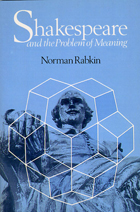
"Norman Rabkin's new book is a very different kind of good book. Elegantly spare, sharp, undogmatic. . . . The relationship between the perception of unity and the perception of artistic achievement is a basic conundrum, and it is one that Mr. Rabkin has courageously placed at the center of his discussion." –G. K. Hunter, Sewanee Review
"Rabkin's book is brilliant, taut, concise, beautifully argued, and sensitively responsive to the individuality of particular Shakespeare plays." –Anne Barton, New York Review of Books
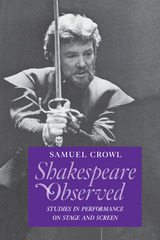
Crowl’s study demonstrates the surprising resonances between Roman Polanski's 1971 film of Macbeth and Adrian Noble's heralded recent production of the play for The Royal Shakespeare Company; argues that Orson Welles's films of Othello and Cabins at Midnight are not only brilliant remaining of Shakespeare in another art form but make a powerful contribution to our contemporary understanding of performance as interpretation; and chronicles the impact of Peter Hall's creation of the Royal Shakespeare Company in 1960 on performance approaches to Shakespeare in the past thirty years.
Shakespeare Observed provides full interpretative readings of key recent Shakespeare productions in England and includes an intimate behind-the-scenes glimpse into the rehearsal process which produced Ron Daniels's emotionally charged version of Romeo and Juliet for the RSC in 1980. The final chapter uses Kenneth Branagh's highly successful film of Henry V as a summary example of the trends and influences Crowl's study traces, seeing the film as gathering its interpretative energies from both Olivier's famous film version of the play and Adrian Noble's stage production featuring Branagh as the king.
Written in a style which places a premium on capturing the vivid and often dazzling moments of stage and film performances of Shakespeare, Crowl's study will be of interest to the avid film and theatergoer as well as to the scholar and student. Shakespeare Observed joins a growing list of recent critical works which have significantly expanded and redefined the boundaries of Shakespeare studies in our time.

As Seth Lerer shows in this pioneering book, Shakespeare’s late plays invite us to contemplate that very question, offering up lyric as a displaced and sometimes desperate antidote to situations of duress or powerlessness. Lerer argues that the theme of lyric misalignment running throughout The Tempest, The Winter’s Tale, Henry VIII, and Cymbeline serves a political purpose, a last-ditch effort at transformation for characters and audiences who had lived through witch-hunting, plague, regime change, political conspiracies, and public executions.
A deep dive into the relationship between aesthetics and politics, this book also explores what Shakespearean lyric is able to recuperate for these “victims of history” by virtue of its disjointed utterances. To this end, Lerer establishes the concept of mythic lyricism: an estranging use of songs and poetry that functions to recreate the past as present, to empower the mythic dead, and to restore a bit of magic to the commonplaces and commodities of Jacobean England. Reading against the devotion to form and prosody common in Shakespeare scholarship, Lerer’s account of lyric utterance’s vexed role in his late works offers new ways to understand generational distance and cultural change throughout the playwright’s oeuvre.
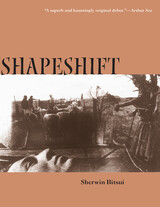
In words drawn from urban and Navajo perspectives, Sherwin Bitsui articulates the challenge a Native American person faces in reconciling his or her inherited history of lore and spirit with the coldness of postmodern civilization.
Shapeshift is a collection of startling new poetry that explores the tensions between the worlds of nature and man. Through brief, imagistic poems interspersed with evocative longer narratives, it offers powerful perceptions of American culture and politics and their lack of spiritual grounding. Linking story, history, and voice, Shapeshift is laced with interweaving images—the gravitational pull of a fishbowl, the scent of burning hair, the trickle of motor oil from a harpooned log—that speak to the rich diversity of contemporary Diné writing.
"Tonight, I draw a raven's wing inside a circle
measured a half second
before it expands into a hand.
I wrap its worn grip over our feet
As we thrash against pine needles inside the earthen pot."
With complexities of tone that shift between disconnectedness and wholeness, irony and sincerity, Bitsui demonstrates a balance of excitement and intellect rarely found in a debut volume. As deft as it is daring, Shapeshift teases the mind and stirs the imagination.
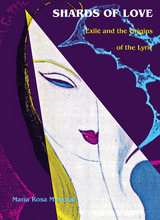
It is in exile that Menocal locates the founding conditions for philology--as a discipline that loves origins--and for the genre of love songs that philology reveres. She crosses the boundaries, both temporal and geographical, of 1492 to recover the "original" medieval culture, with its Mediterranean mix of European, Arabic, and Hebrew poetics. The result is a form of literary history more lyrical than narrative and, Menocal persuasively demonstrates, more appropriate to the Middle Ages than to the revisionary legacy of the Renaissance. In discussions ranging from Eric Clapton's adaption of Nizami's Layla and Majnun, to the uncanny ties between Jim Morrison and Petrarch, Shards of Love deepens our sense of how the Middle Ages is tied to our own age as it expands the history and meaning of what we call Romance philology.

There is a controlled, unpretentious constancy to Katherine Soniat's passionate, wise poetry that reminds one of the language of Elizabeth Bishop. Yet her voice is singular; there is an elegance of line, a centered quality that makes the poems more courtly than visceral. One tends to trust what is given in these beautifully rendered images and this gentle music.
The poems are particularly crafted, partly meditative, yet the poet handles larger themes easily and with grace, without the shrillness that sometimes seems common in our time. Her gift for metaphoric language is evident. She has an even-tempered, deeply intelligent mode which carries from poem to poem.

The latest collection from award-winning poet Vievee Francis, The Shared World imagines the ideas and ideals and spaces of the Black woman. The book delves into inherited memories and restrictions between families, lovers, and strangers and the perception and inconvenient truth of Black woman as mother—with or without child. Francis challenges the ways in which Black women are often dismissed while expected to be nurturing. This raw assemblage of poetic narratives stares down the oppressors from within and writes a new language in the art of taking back the body and the memory. These poetic narratives are brutal in their lyrical blows but tender with the bruised history left behind. “You can’t stop this / song,” she writes. “More hands than yours have closed / around my throat.”
Francis’s lyric gifts are on full display as she probes self-discovery, history, intimacy, and violence. Her voice encompasses humor and gravity, enigma and revelation. What emerges is a realm of intertwined experiences. “The secret to knowing the secret is to speak,” she concludes, “but we too often tell / the stories of no matter and avoid the one story that does matter. / In truth, we are bound by one story, so you’d think by now / we’d tell it, at least to each other.”
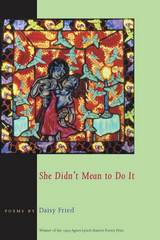
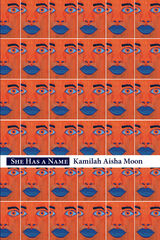
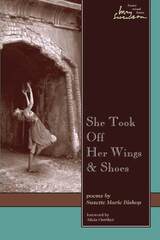

Patricia Clark's poems explore not only refuge but also wonder and appreciation, as well as astonishment.
A number of the 56 poems collected here show her grappling with loss, especially the loss of her mother, though she isn't one to indulge in misery. Instead, she goes walking. It is the harp tree in "The Poplar Adrift" that Clark imagines giving voice to sorrow, thus sparing those who stroll by—"all the grief that passes" becoming, in the tree’s very fibers, sound on the air, a wind through branches and leaves.
Clark also finds opportunities for learning, for meditation, and for contemplation. Octavio Paz has written, "Nature speaks as though it were a lover." In many of the poems collected here, Clark listens to nature speaking and revels in this lover, aiming to capture some of the qualities of Michigan's trees, birds, and landscapes in lyric poems.
It is Clark's particular gift to give us "tasted" as she draws her readers into the world, inhabiting the worlds of nature, head, and heart.
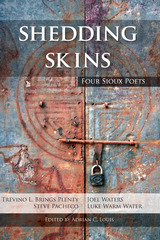
Here's the myth: Native Americans are people of great spiritual depth, in touch with the rhythms of the earth, rhythms that they celebrate through drumming and dancing. They love the great outdoors and are completely in tune with the natural world. They can predict the weather by glancing at the sky, or hearing a crow cry, or somehow. Who knows exactly how? The point of the myth is that Indians are, well, special. Different from white people, but in a good way.
The four young male Native American poets whose work is brought together in this startling collection would probably raise high their middle fingers in salute to this myth. These guys and "guys" they are—don't buy into the myth. Their poems aren't about hunting and fishing or bonding with animal spirits. Their poems are about urban decay and homelessness, about loneliness and despair, about Payday Loans and 40-ounce beers, about getting enough to eat and too much to drink. And there is nothing romantic about their poetry, either. It is written in the vernacular of mean streets: often raw and coarse and vulgar, just like the lives it describes. Sure, they write about life on the reservation. However, for the Indians in their poems, life on the reservation is a lot like life in the city, but without the traffic. These poets are sick to death of the myth. You can feel it in their poems.
These poets are bound by a common attitude as well as a common heritage. All four—Joel Waters, Steve Pacheco, Luke Warm Water, and Trevino L. Brings Plenty—are Sioux, and all four identify themselves as "Skins" (as in "Redskins"). In their poems, they grapple with their heritage, wrestling with what it means to be a Sioux and a Skin today. It's a fight to the finish.
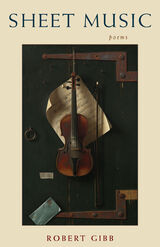
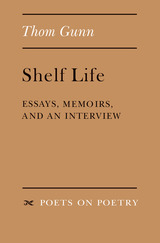
Gunn’s criticism communicates his own enthusiasm for poetry. He tries to show his readers how to get a first foothold into the work of some of his favorite poets, whether Wyatt or Whitman, Mina Loy or Robert Creeley.
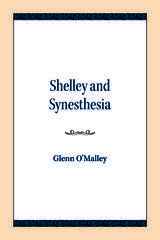
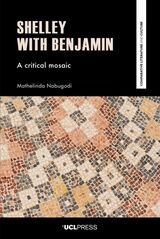
Shelley with Benjamin is an experiment in comparative reading. Born a century apart, Percy Bysshe Shelley and Walter Benjamin are separated by time, language, temperament, and genre. One is a Romantic poet known for his revolutionary politics and delicate lyricism, and the other is a melancholy intellectual who pioneered a dialectical method of thinking in constellations. Yet, taken together, their ideas are mutually illuminating.
In a series of close readings that are by turns playful, erotic, and violent, Mathelinda Nabugodi unveils affinities between two writers whose works are simultaneously interventions in literary history and blueprints for an emancipated future. In addition to offering fresh interpretations of both major and minor writings, she elucidates the personal and ethical stakes of literary criticism. The book will appeal to readers of Shelley and Benjamin as well as those with an interest in comparative literature, literary theory, romantic poetics, and creative critical writing.

Shelley has long been viewed as a dreamer isolated from reality, a “beautiful and ineffectual angel,” in Arnold’s words. In contrast, Stuart Sperry’s book emphasizes the life forces originating in the poet’s childhood that impelled and shaped his career, and reasserts Shelley’s relevance to the social and cultural dilemmas of contemporary life.
Concentrating on the major narrative and dramatic poems and the patterns of development they reveal, Sperry reintegrates Shelley’s poetry with his life by showing how, following the traumatic events of his early years, the poet sought to preserve and extend those life impulses by creating a network of personal relationships that provided the inspiration and model for his poems. As the circumstances of his life and his relationships to others changed and as his thought evolved, he was led to reshape his major poems. Three chapters at the center of the book, devoted to Shelley’s visionary masterpiece Prometheus Unbound, provide the finest introduction so far to its conceptions and intent as well as a powerful vindication of the poet’s enduring idealism. In defining Shelley’s true originality, Sperry defends the poet against his harshest critics by suggesting that his vision of human potential may represent a vital resource against the competitive drives and self-destructive compulsions of our own day.
Sperry’s approach to the poetry through the formative events of Shelley’s early life provides an excellent biographical introduction. His reinterpretation of the major works and the career will appeal to first-time readers as well as to mature students of Shelley.

Antiquity’s original didactic poet.
Hesiod describes himself as a Boeotian shepherd who heard the Muses call upon him to sing about the gods. His exact dates are unknown, but he has often been considered a younger contemporary of Homer.
The first volume of this revised Loeb Classical Library edition offers Hesiod’s two extant poems and a generous selection of testimonia regarding his life, works, and reception. In Theogony, Hesiod charts the history of the divine world, narrating the origin of the universe and the rise of the gods, from first beginnings to the triumph of Zeus, and reporting on the progeny of Zeus and of goddesses in union with mortal men. In Works and Days, Hesiod shifts his attention to humanity, delivering moral precepts and practical advice regarding agriculture, navigation, and many other matters; along the way he gives us the myths of Pandora and of the Golden, Silver, and other Races of Men.
The second volume contains The Shield and extant fragments of other poems, including the Catalogue of Women, that were attributed to Hesiod in antiquity. The former provides a Hesiodic counterpoint to the shield of Achilles in the Iliad; the latter presents several legendary episodes organized according to the genealogy of their heroes’ mortal mothers. None of these is now thought to be by Hesiod himself, but all have considerable literary and historical interest.
Glenn W. Most has thoroughly revised his edition to take account of the textual and interpretive scholarship that has appeared since its initial publication.
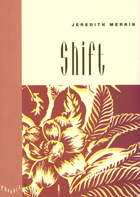
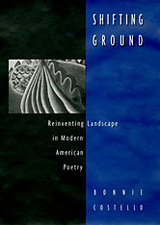


In the beginning, was the light, or was it the Lumières? In Ulrike Almut Sandig’s latest volume of poetry, it is only a leap from the creation of the world to the symphony of the Berlin metropolis. And there is a question holding out off the coast of Lampedusa: Can shining sheep be used as night storage for the dark hours, when we are overwhelmed with fears of God, of a gym teacher with a whistle, of mothers with eyes as black as coal? In devastating sequences, Sandig charts the reality of an abused child, victims of contemporary war, or a fourteenth-century Madonna. Full of humor, musicality, lightness, and rage, Shining Sheep is not just visual poetry—it has loops in your ear and filmic explosions of imagery for all your senses.


A detective’s red thread spiderweb mapping the constellations among parenting, capitalism, aging, and ghosts, this stunning collection is wistful, unmoored, glamorous, and immense. These tour-de-force poems simultaneously capture an impression of emptiness and pleasure, of existing in a liminal space filled with both hollowness and potential.
It was difficult to tell when the world broke.
—Excerpt from “Ravine”

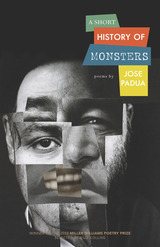
Winner, 2019 Miller Williams Poetry Prize
“We are the happy riders on the stream of Padua’s consciousness . . . a smart, sympathetic mind at work.”
—Billy Collins
Drawing on the spirit of New York City in decades past, A Short History of Monsters presents the sins and obsessions of a poet nimble in beat and slam traditions. In his first full-length collection, Jose Padua wrestles with an American dream interrupted by failure, excess, and other nightmares. Often brash and unruly, these poems range from recollections of lost, drunken days to unadorned manifestations of hope. Throughout, the speaker redefines his relationship to pop culture, praising it, skewering it, and mourning it by turns.
The poems that make up A Short History of Monsters tend toward both dark humor and epiphany, diving deeply into their own despair and rising up again with existential absurdity. This is a poetry that gets down into the grit and grime of the real world, digging out a space to experience being alive as miraculous in and of itself.
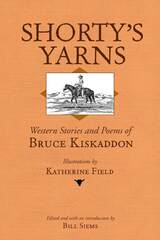
In the world of cowboy poetry, no poet is better known or more widely appreciated than Bruce Kiskaddon. Though he died in 1950 his poems have been at the forefront of the cowboy poetry revival that began in the 1980s and have been reprinted frequently in published collections and anthologies. What is less known is that Kiskaddon during his lifetime also published stories. These humorous, realistic prose sketches of cowboy life were almost lost, but they are in their own right gems of literary Americana on a par with the poems. Originally published in the Western Livestock Journal between 1932 and 1939, the short stories drew on Kiskaddon's own experience of ranching in the Southwest and Australia to portray real life on the range. Bill Siems has recovered these stories and compiled and introduced them in this new collection, to which he has added a selection of Kiskaddon's poems and the original drawings that accompanied them, by Katherine Field, a fine, underappreciated western artist.
Set in Colorado, New Mexico, and Arizona, the stories are a loosely tied string of old timer's yarns with a continuing cast of engaging characters, whom Kiskaddon avoids reducing to cowboy stereotypes. They include, as Siems describes them, "Kiskaddon himself as the character Shorty. As a common waddy with a small man's feistiness and a young man's mischief, Shorty encounters the wicked world with a succession of companions: Bill, high-headed and a bit of an outlaw; Rildy Briggs, untamable and unstoppable young cowgirl; and Ike, an old-fashioned dandy and 'a very fortunate person.' More or less in the background is the Boss-actually a series of Bosses-generally affectionately respected as long as he remains democratic in his dealings with the waddies. Buffoonery is provided by a succession of pompous characters, from townspeople who look down their noses on wild, unwashed waddies to professors from the East who have read books on how ranches should be run."
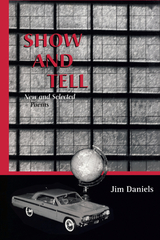

In Show Me Your Environment, a penetrating yet personable collection of critical essays, David Baker explores how a poem works, how a poet thinks, and how the art of poetry has evolved—and is still evolving as a highly diverse, spacious, and inclusive art form. The opening essays offer contemplations on the “environment” of poetry from thoughts on physical places and regions as well as the inner aesthetic environment. Next, Baker looks at the highly distinctive achievements and styles of poets ranging from George Herbert and Emily Dickinson through poets writing today. Finally, he takes joy in reading individual poems—from the canonical to the contemporary; simply and closely.
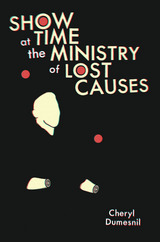


Webb is celebrated for his use of humor; yet even his funniest poems rise, as the best humor must, from serious concerns. Powered by an uncompromising but compassionate intelligence and an abiding wonder at the beautiful strangeness of the world, Sidebend World explores with clarity and vividness a wide range of emotions—love to hate, tenderness to brutality; yet, above all, Webb is a poet of praise. Metaphors of startling aptness and originality, a distinctive voice at once provocative and endearing, high musicality, propulsive energy, wild imaginative leaps, as well as mastery of diction from lyricism to street-speak, create a reading experience of the first order. These poems go down easy, but pack a wallop. As Robert Frost said poetry should do, Sidebend World "begins in delight and ends in wisdom."
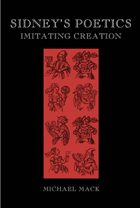
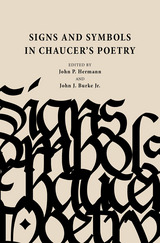
Each highly distinguished scholar responds to D. W. Robertson’s seminal, if controversial, approach to Chaucer’s work. Robertson’s scholarship, which also provides the opening essay of the collection, uses a historicist approach to contextualize Chaucer’s imagery within the literary and cultural conventions of the Middle Ages. Sources for such contextualization include etymology, topology, the classics, pictorial art, the Bible, and the developing sciences of the time. Robertson, as well as his contemporary Bernard F. Huppé, provided a fascinating new direction for modern Chaucer studies that focused on daily life.
Each essay uses this approach to draw attention to various examples of Chaucer’s iconography. The texts span several of Chaucer’s works and a plethora of subjects, including music, disappointed expectations, repeated or conflicting signs, and more. This volume provides insight into Chaucer’s work as well as the Middle Ages as a whole, examining conventions and expectations of society at that time. Scholars, instructors, and lovers of Chaucer will all find value in this finely edited collection.
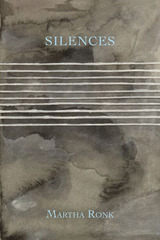
These poems endeavor to give a much-deserved voice to silence, addressing the power of what is not seen. While silence remains perpetually out of reach, Ronk invites us to follow the language that creeps up to its edges. The poems in this collection form an inquiry that moves through the presence of silence and reveals insights into the character of the visual art in which it lives.


Stately verse.
Statius’ Silvae, thirty-two occasional poems, were written probably between 89 and 96 AD. Here the poet congratulates friends, consoles mourners, offers thanks, admires a monument or artistic object, and describes a memorable scene. The verse is light in touch, with a distinct pictorial quality. Statius gives us in these impromptu poems clear images of Domitian’s Rome.
Statius was raised in the Greek cultural milieu of the Bay of Naples, and his Greek literary education lends a sophisticated veneer to his ornamental verse. The role of the emperor and the imperial circle in determining taste is also readily apparent: the figure of the emperor Domitian permeates these poems.
D. R. Shackleton Bailey’s edition of the Silvae, which replaced the earlier Loeb Classical Library edition with translation by J. H. Mozley, is now reissued with corrections by Christopher A. Parrott.
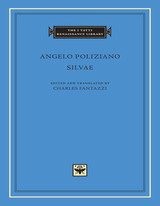
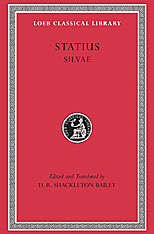
Statius' Silvae, thirty-two occasional poems, were written probably between 89 and 96 CE Here the poet congratulates friends, consoles mourners, offers thanks, admires a monument or artistic object, describes a memorable scene. The verse is light in touch, with a distinct picture quality. Statius gives us in these impromptu poems clear images of Domitian's Rome.
Statius was raised in the Greek cultural milieu of the Bay of Naples, and his Greek literary education lends a sophisticated veneer to his ornamental verse. The role of the emperor and the imperial circle in determining taste is another readily apparent influence: the figure of the emperor Domitian permeates these poems. D. R. Shackleton Bailey's new edition of the Silvae, a freshly edited Latin text facing a graceful translation, replaces the earlier Loeb Classical Library edition with translation by J. H. Mozley. Kathleen M. Coleman contributed an essay on recent scholarship on the Silvae.

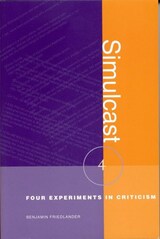
Simulcast offers long overdue, highly opinionated, and penetrating examinations of a flourishing movement in American letters by one of its most perceptive practitioners. The four “experiments” in literary criticism gathered in this volume vary in style and point of view. Taken together, they reassess the fundamental relationship between poetry and criticism.
“The Anti-Hegemony Project” is a satire, employing the rhetoric of journalism and the colloquial exchanges of online fan groups to analyze one of the earliest appearances of a poetry community on the World Wide Web: the “Poetics List” maintained at the State University of New York, Buffalo. “Poe’s Poetics and Selected Essays” is a collection of polemical essays on subjects ranging from modernism to language poetry. The third experiment, “The Literati of San Francisco,” is a detailed portrait of the figures and ideas at the heart of an important literary scene a decade after language poetry’s inception. The final essay, “A Short History of Language Poetry,” provides a less polemical, more sober and even-handed analysis of that movement from its origins to the present and its prospects for the future.
These critical interventions and essays are important studies of an evolving poetic field, but they also represent an evolution in criticism itself. Friedlander’s unorthodox methodology is to create a critical text by rewriting prior examples of criticism, among them Jean Wahl’s A Short History of Existentialism and Edgar Allan Poe’s "Literati of New York City." The resulting critiques are themselves a kind of poetry. They explore the issues of style versus substance, artifice versus authenticity, and plausibility versus truth, while the shifts in perspective call into question the authority of any one critical account.
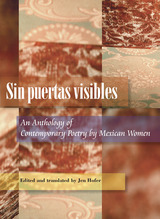
Featuring the work of: Cristina Rivera-Garza, Carla Faesler, Angélica Tornero, Ana Belén López, Silvia Eugenia Castillero, Mónica Nepote, Dana Gelinas, María Rivera, Ofelia Pérez Sepúlveda, Dorantes, and Laura Solózano.
Mexico poesses one of Latin America's most important poetic traditions, but its depth and range are virtually unknown to readers north of the border. Reflecting the diversity and complexity f contemporary mexican poetry, the poems presented here are by turns meditative and explosive, sensuous and inventive, ironic and tender--in short, they are subversive, provocative, and bold.


Through wit, vulnerability, and rich lyrical language, Tomaselli invites us to walk with her through loss and on to a persistent process of discovery. The poems chronicle a cultivation of awe, unearthing a fresh faith rooted in the present realness of everyday experiences. Stripped of the orthodoxy that both grew and crushed her, she reconstructs a new core of trust for herself. Here we learn with the poet to seek celebration in daily life and to foster a sense of beauty from the mundane.
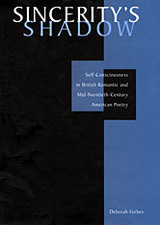
In a work of surprising range and authority, Deborah Forbes refocuses critical discussion of both Romantic and modern poetry. Sincerity's Shadow is a versatile conceptual toolkit for reading poetry.
Ever since Wordsworth redefined poetry as "the spontaneous overflow of powerful feelings," poets in English have sought to represent a "sincere" self-consciousness through their work. Forbes's generative insight is that this project can only succeed by staging its own failures. Self-representation never achieves final sincerity, but rather produces an array of "sincerity effects" that give form to poetry's exploration of self. In essays comparing poets as seemingly different in context and temperament as Wordsworth and Adrienne Rich, Lord Byron and Anne Sexton, John Keats and Elizabeth Bishop, Forbes reveals unexpected convergences of poetic strategy. A lively and convincing dialectic is sustained through detailed readings of individual poems. By preserving the possible claims of sincerity longer than postmodern criticism has tended to, while understanding sincerity in the strictest sense possible, Forbes establishes a new vantage on the purposes of poetry.
READERS
Browse our collection.
PUBLISHERS
See BiblioVault's publisher services.
STUDENT SERVICES
Files for college accessibility offices.
UChicago Accessibility Resources
home | accessibility | search | about | contact us
BiblioVault ® 2001 - 2024
The University of Chicago Press









